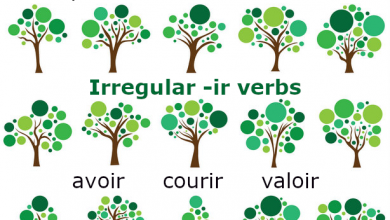why is my puppy breathing so fast
If you have adopted a new dog into the family, then, chances are that you are already observing subtle new behaviors in your pup. You may have noticed that it tends to breathe rapidly from time, especially while asleep. Naturally, if you’re not used to seeing a fast breathing rate or have never considered your dog’s normal breathing rate before, you may find yourself becoming anxious about your puppy breathing rapidly.Now the question is, is it normal? And should a pet parent be worried about such conditions in their young dogs? After all, a dog breathing fast can be extremely stressful for new owners. Particularly for dog owners that have never had any dogs before!Reading: why is my puppy breathing so fastFor many years, vets have entertained questions like ‘’My puppy is breathing fast; what should I do?’’ Most of these inquiries come from novice dog owners who have yet to understand rapid breathing in dogs.However, the situation might not be serious as most of those spates of accelerated breathing are caused by normal conditions. It is only very few that call for urgent veterinary attention. To further understand the causes of rapid breathing in puppies, and to soothe any fears, the following tips will help.
What is Considered Fast Breathing?
Contents
It is quite difficult to know what is considered abnormal breathing in dogs without first studying their normal breathing rate. Pet parents should be informed to know what to always look out for as canine breathing is a bit different from what we experience as humans. Thus, it would be really hard for someone to distinguish rapid breathing if he or she doesn’t know the normal dog breathing rate.Sometimes, a puppy’s rapid breathing is completely normal, and doesn’t necessarily mean they’re having difficulty breathing. Instead, try to follow these guidelines to see if your puppy is having trouble breathing or if they’re simply breathing fast while sleeping because of an exciting dream they’re having.First, you should try figuring out your canine friend’s normal respiratory rate – meaning the number of breaths a dog can take within a minute. Depending on their activity level and general health, an average adult dog is expected to take 10 to 30 breaths a minute. For younger dogs or puppies, their breath is expected to be more accelerated than that of a full-grown dog at a range of 15 to 40 breaths a minute – this is called ‘puppy rapid breathing’.It should also be noted that breathing fast while sleeping can be completely normal for puppy breathing rates, too. Adult dogs may breathe more slowly, while your puppy’s breathing rate may simply be due to an exciting dream they’re having (one which adult dogs may be more accustomed to).However, to find out a puppy’s unique breathing speed, you only need to follow a few steps and apply a bit of patience. Furthermore, to get an accurate result, you just have to catch the puppy when it is relaxed. Though it might sound easy, it can be quite difficult to get a hyperactive puppy into a relaxed mode for more than a few seconds. If your pup is the type that finds it hard to relax, then you have to wait until it has fallen asleep.Once the pup is fast asleep, set a timer up and keep a close watch on the dog’s chest. With this set-up, you will be able to count the number of times the chest retracts and expands per minute. A single breath is represented by each deflation and inflation of the dog’s lungs. Also, you may decide to keep the timer on for the full sixty seconds to get an accurate result of the puppy’s breath rate per minute, or you can terminate it at half a minute and then double the number you got.To be sure that your result is accurate enough, you should perform the test repeatedly. With a collection of all the test results, it would be easy for you to find an average – this would give a better idea of the workings of a puppy’s lungs. Armed with this vital info, every pet parent should be well equipped to decipher when their canine companion is having labored breathing and when it is normal.
Why do Puppies Breathe So Fast?
Read more: Why did dyrus and emiru break upIf your puppy breathing fast is meeting an average of 30 times per minute, it should be obvious. However, sometimes puppy breathing can be hard to keep track of. Not to mention that – whether it’s a dog breathing fast or a puppy breathing fast – there can often be many, logical reasons as to why they’re breathing rapidly or have abnormal breathing patterns. It doesn’t always mean there are medical concerns, that you need to call a veterinarian immediately or that they’re in respiratory distress.A puppy panting in sleep can even take more breaths within one minute. But regardless of any underlying reason, a panting puppy can take as much as 400 breaths in a single minute. Of course, that would definitely be considering rapid puppy breathing – yet your dog’s breathing rate can still be perfectly healthy! Here are some possible reasons why your puppy is breathing so fast.
Excessive Heat
A puppy that has spent much time under the scorching sun is likely to pant rapidly – this is a normal situation. It will aid the dog in regulating its body temperature. Humans do the same via sweating, but canines don’t have this luxury as they can’t sweat through their furry coats. And although there are sweat glands present in their paws, the best that a dog can do under such a situation is to pant to cool off.What’s more, the aim of panting is to circulate cool air through a dog’s body, as it breathes in and out through the nose and mouth. Some of the dog’s saliva will evaporate as the hot air goes out of the mouth, effectively cooling the temperature of the dog’s tongue. This form of remedy is natural and how fast a dog breathes is dependent on how hot its body is.
Stress and Anxiety
It is a common occurrence for puppies to experience rapid breathing when they arrive at their new homes. This is considered one of the most difficult instances of rapid breathing and excessive panting, as it has no immediate remedy. Most puppies are confused and frightened when they are first brought home, especially with their separation from a familiar home to a strange one.These puppies will also be missing the care of their mother, and it will take them time to settle and acclimate to their new environment. In this case, accelerated breathing is normal, particularly within the puppy’s first few weeks. Any new experience like going in a car for the first time can bring on fast breathing, which will normalize as the puppy gets used to the experience.
Over-Exertion
High temperature and excessive physical activity also result in rapid breathing. Puppies are naturally hyperactive; in fact, they are best described as little balls of energy, ever ready to run around and play non-stop. They are going to be worn out from all that activity, and once they take a break, fast breathing will be observed.Consequently, your pup may decide to lie down for some minutes to catch its breath. Internally, your pooch’s body temperature increased from all the physical exertion. The fast breathing is merely an attempt to bring things back to normal as the dog calms down.
Sleeping
Puppies tend to sleep more compared to adult dogs, and it is quite normal for them to breathe faster while asleep – it is a vital part of their development process. What’s more, rapid breathing in mid-slumber is considered to be a mere response to what the dog is dreaming about.Typically, accelerated breathing occurs in the rapid eye movement (REM) stage. At this stage, a puppy is fast asleep and having some vivid dreams. The rapid breathing can be attributed to the dog having horrifying dreams or pleasant ones where it is chasing and lynching prey. Whichever may be the case, all fast breathing will cease immediately when your puppy is awake.Additionally, it is not strange for accelerated breathing to occur alongside some unusual behaviors – a dog can suddenly start to bark, whimper, or kick like it is making attempts to break out in a run. All these are quite normal with puppies and do not call for professional attention.
Sleeping position
Read more: ESPN | Top Q&ARapid breathing may be the culprit when a dog lies or stands with its elbows placed side apart and neck stretched out. In this kind of condition, distress is sure to set in when you try interacting with the pup. The sides of the dog’s tummy should be checked to see if it is undergoing a rapid in and out movement. Their gums and tongue should be equally scrutinized, and the vet should be brought in if any unusual color is observed (blue or blue-purple tinge). If you want to find out more about your dog’s sleeping positions check out our article on the Common Dog Sleeping Positions and What They Mean.
Medical Reasons for Fast Breathing
The aforementioned causes of puppy rapid breathing are normal and won’t call for any medical intervention. But when accelerated breathing is a result of health problems, the causes are quite numerous. From a medical standpoint, these are just a few examples as to why your dog is breathing rapidly.
Tachypnea
There is no immediate cause for these type of breathing problems. A puppy with tachypnea will suddenly start panting even when it was relaxed before the episode. This type of panting tends to persist and can last longer compared to normal panting spells. However, be sure to consult your vet if it becomes regular for a proper diagnosis, if you’re worried.
Dyspnea
Some dogs don’t just pant; their panting episodes are usually accompanied by labored breathing – this condition is called dyspnea. You might observe your puppy positioning its body such that the intake of air will be increased, and for this effort, the pup will look exhausted. For the canine population, panting is supposed to come naturally; so, when you notice that your pooch is working too hard for it, it is time to call on the vet.Dyspnea might also be a result of some physical symptoms coming from an underlying health problem that is ailing the dog. This includes conditions like kennel cough, asthma, infections, pulmonary edema, worms, and a whole lot more.
Brachycephalic Dogs
A dog that is Brachycephalic can have its normal panting escalate into a health problem. The condition is prevalent among breeds with signature short snouts like Boston Terriers, Pugs, and many more. Of course, knowing how many breaths the average dog takes is going to be vastly different when compared to non-brachycephalic dog breeds. So, if you’re seeking the average breathing rate of dogs, be sure to consider the breed of your puppy, too.These dog breeds are prone to breathing problems, their soft palates are longer and have the propensity to obstruct the airways, narrowing the nostrils; thus making inhaling difficult. If your pup belongs to any of those breeds, then you must try to avoid the occurrence of excessive panting.
Possible Cures or Solutions
If rapid canine breathing is a result of some medical condition, the vet will recommend some medication to manage or cure the condition. However, there are several remedies for accelerated breathing problems that don’t have any underlying medical problems.
- If the culprit is excessive heat, the possible remedy is to take the puppy indoors and increase the air-conditioner. The panting will not go down immediately, but the dog’s body temperature will definitely cool down. Coldwater should also be made available. Failure to cool the dog down immediately may lead to heatstroke, which is fatal and can lead to death on some occasions. Never expose a puppy to very hot weather for too long or leave it locked in a hot car.
- In the case of anxiety or stress, dog parents usually find themselves in a helpless situation as there isn’t much they can do. You can only be loving and gentle, taking the opportunity to bond with your new pooch as you try to let it know that all is well and that you are ready to protect and care for it. This is exactly where the treats come in handy; you can dish out the treats during vet visits, car rides, or trips just to let them know that this new experience is nothing but a positive one. With time, the puppy will begin to associate those situations with dog treats, praises, and rewards, and the negative feelings will dissipate naturally.
- The remedy for over-exertion is to make plenty of water available to the dog and bring it into an air-conditioned room. You may also try relaxing the dog for a while by making it sit before moving out for the next play session, which is inevitable as puppies rarely rest.
- There is no remedy for accelerated breathing while a puppy sleeps. Just wait for the dog to wake up, and all will become normal again. It is not a good idea to wake a puppy from sleep just because it is breathing fast – this may lead to dog bites as the shock of suddenly snapping back into reality becomes overwhelming. The dog is likely to forget who you are and act in self-defense, so it is best to let sleeping dogs lie.
Conclusion
Canine rapid breathing does not always signify distress; your puppy breathing fast and shallow with an open mouth and lolling tongue could mean that it is just panting to cool down its body temperature. However, if you notice that your canine friend is breathing faster and heavier than normal, with a mouth partly open or closed, something serious may be in the offing, and the vet should be contacted immediately. Also, note that a puppy breathing fast while sleeping may be that the young dog is acting its dream out!Read more: Why are wisdom teeth called wisdom teeth
Last, Wallx.net sent you details about the topic “why is my puppy breathing so fast❤️️”.Hope with useful information that the article “why is my puppy breathing so fast” It will help readers to be more interested in “why is my puppy breathing so fast [ ❤️️❤️️ ]”.
Posts “why is my puppy breathing so fast” posted by on 2021-09-06 07:25:54. Thank you for reading the article at wallx.net



